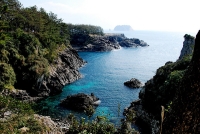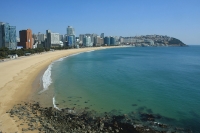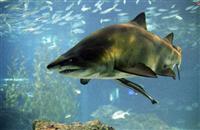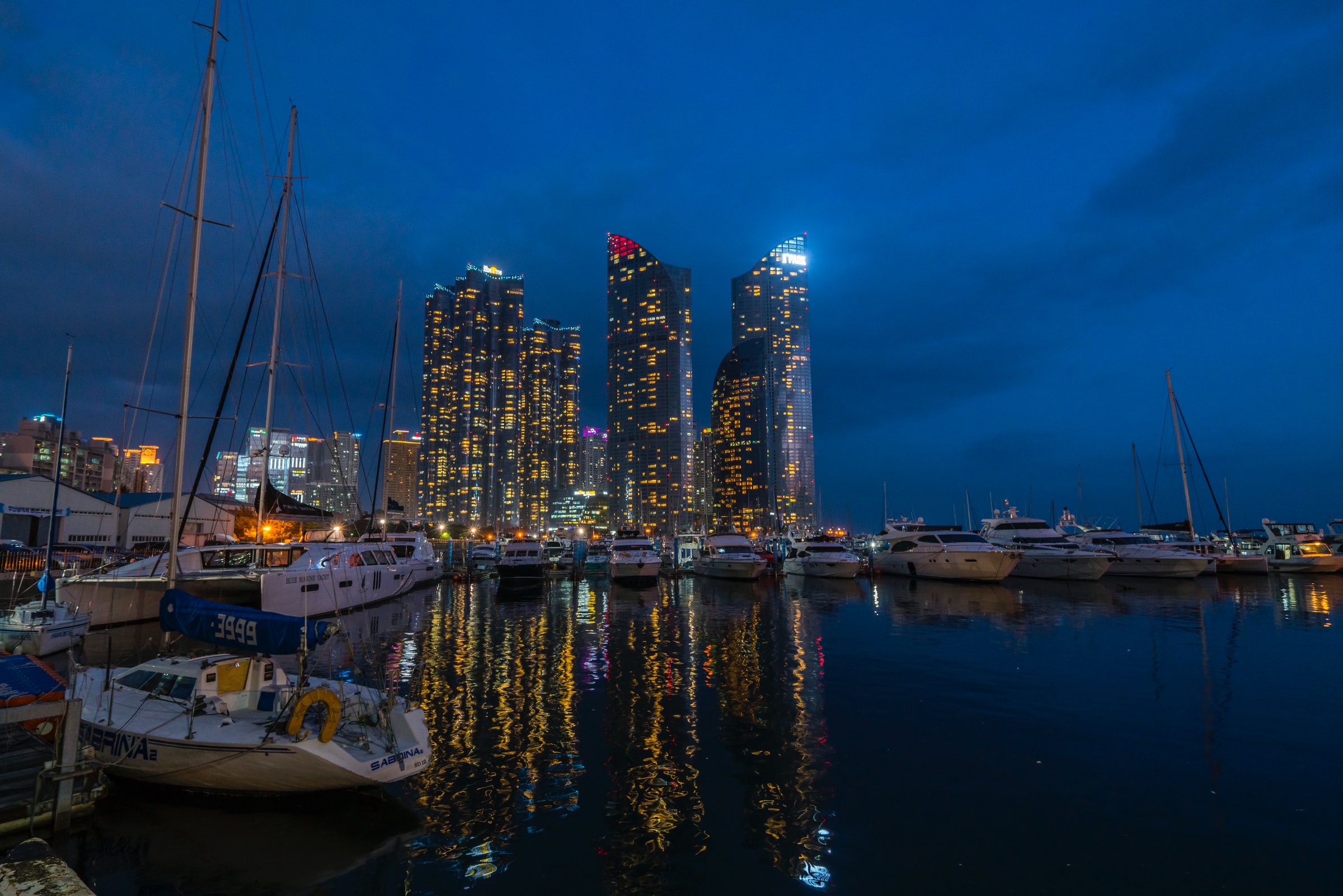Busan Travel Guide
Busan is home to some of South Korea's most popular beaches, hot spring resorts, and numerous historical attractions. It is the largest port and second largest city in South Korea, and is a quick three-hour trip via bullet train from Seoul to the north. Busan often goes unnoticed as visitors flock to get a taste of the bright lights and big city feel of Seoul, but it's one of South Korea's friendliest and most relaxed cities.
With its beaches, mountains, and temples, Busan has many attractions on offer. The coastline is one of the main draw cards, with beaches such as the beautiful Haeundae and Gwangalli existing as some of the best the country has to offer. The Busan Aquarium is Korea's largest and best, and is one of the highlights of a trip to the city. Visitors interested in temples and historical sites can visit the Beomeosa and Yonggungsa temples, as well as the Geumjeong Fortress.
The markets in Busan are an attraction in and of themselves. They offer wonderful photographic opportunities and can sometimes be a real eye-opener, particularly the Jagalchi seafood market, the bohemian Gukje Market, and the Haeundae Market. Visitors to the city should try and include a trip to one of the local baseball games, a genuine cultural experience. Baseball games are held every weekend during summer. Busan also has great shopping and dining out opportunities. Visitors will find that this seaside city has a lot of heart and may even prove to be the highlight of a trip to South Korea.
Things to do in Busan
Of the many attractions that Busan has to offer, its beaches remain at the top of the list of things to see. Koreans and foreigners alike flock to Busan during the summer holiday period to enjoy the city's beautiful beaches and extensive range of delicious seafood options.
Haeundae and Gwangalli are the two most well-known beaches in Busan. However, for a slightly less crowded day at the beach, visitors should take a taxi to Songjeong Beach or try the even more outlying Dadaepo Beach.
Keeping to the oceanic theme, Busan's other great tourist attraction is its aquarium, which is the largest in Korea and has an impressive variety of marine life on display. The gorgeous and very popular Jeju Island is also just a ferry ride away from Busan.
Notable historic and cultural sights in Busan include Beomeosa Temple, one of Korea's Five Great Temples, located in a serene natural setting outside the city. Additionally, Haedong Yonggungsa Temple has a dramatic cliff-top setting while Busan Tower in Nampodong is a great place to take in panoramic views of the city and surrounding mountains and ocean.
Other places of interest in Busan include the UN Memorial Cemetery, the Busan Museum of Modern Art, Hur Shim Chung Spa, Geumjeong Fortress, and Taejongdae Island. The Jagalchi Fish Market and Choryang Foreigner Shopping Area are worth checking out for their cultural interest alone.
Busan is teeming with excellent attractions and activities for kids too. For starters, the gargantuan department stores of Lotte World and Shinsegae provide endless hours of fun, shopping, and other mall activities, such as video arcades and 3D cinemas.

Jeju Island
Jeju Island is one of the most popular holiday destinations in South Korea and can be reached by ferry from Busan. Found off the southern tip of the Korean Peninsula, it enjoys relatively warm weather throughout the year. Visitors generally flock to its beaches, as well as the volcanic Mount Hallasan.
The island is home to a number of interesting museums, including the Folklore and History Museum, the Independence Museum, and the fascinating Haenyeo Museum, which provides valuable insight into the tradition of the Haenyeo women divers of the island.
Jeju Island has many fascinating natural wonders, including the Gimyeong Maze, the Manjanggul lava tube cave, the hexagonal-shaped Jusangjeolli cliff, and Cheonjiyeon Waterfall. Iho Beach is made up of both yellow and dark grey volcanic sand, creating beautiful patterns in the tidal waters.
Visitors to Jeju Island can go on numerous tours of the island or they can relax on the beaches or at hot spring resorts. There are many hiking trails and going scuba diving is definitely one of the top things to do on Jeju Island.
The island has a broad range of hotels and accommodation options and there are many small restaurants serving up regional delicacies ranging from live squid to mandarin oranges, mushrooms, abalone, and wild boar.

Beaches in Busan
Busan is home to a number of excellent tourist sites, though its standout attractions must be its beaches, which are famous throughout Korea and draw tens of thousands of vacationers annually to the busy port city. The destination's beaches are best experienced in spring, autumn, and winter, as between mid-June and the end of August (Korea's official beach season) they can become unpleasantly overcrowded. Busan's main beach is Haeundae, which sports a good amount of fine golden sand and good swimming conditions.
The area surrounding Haeundae Beach is also full of trendy bars and restaurants, a wealth of shopping opportunities, and lots of accommodation options, making it the perfect base for a weekend getaway in Busan. The next beach down the pecking order is Gwangalli, which has a great view of the Gwangan Grand Bridge, and on any given day will play host to a number of informal volleyball games.
Slightly more remote beaches that might not suffer too much from overcrowding include Songjeong, with its cleaner waters and bigger waves (ideal for surfing), and Dadaepo, located in a river estuary about five miles (8km) from downtown Busan, which features shallow waters and outstanding natural scenery.

Busan Aquarium
Korea's largest aquarium and one of its most talked about tourist attractions, the Busan Aquarium is a sure-fire winner guaranteed to delight visitors of all ages. The aquarium is a major operation and spread over three levels, with its main tank containing an astounding three million litres of water.
The Busan Aquarium is home to roughly 35,000 marine animals from more than 250 species, and features special exhibitions to showcase rare and exotic creatures such as jackass penguins, clawed otters, electric eels, sharks, piranhas, giant turtles, and an assortment of colourful sea jellies.
Visitors largely view the sea life from the confines of an impressive 260-foot (80m) underground tunnel, through enormous acrylic windows that allow for photography. Of particular interest to younger visitors is the aquarium's 3D simulator located on the first floor, a cutting-edge piece of technology that gives a taste of what it must be like to explore the ocean floor on foot.
One of the best things to see in Busan and a must for family vacationers, the Busan Aquarium is a delightful way to spend a few hours marvelling at the ocean's riches before heading upstairs and out onto Haeundae Beach to catch some sun.
Getting Around
Busan is less than three hours from Seoul on the KTX (bullet train), while normal and express buses leave every hour between Seoul and Busan. Tourists visiting Busan will easily be able to get to all the main tourist sights, beaches, and shopping districts via the Busan Subway. Concessions for the subway are available for those staying in the city for more than just a weekend. All subway announcements and subway maps are written in Korean and English.
The buses are almost as easy to use as the subway, but English maps of the bus routes are sometimes not available, so buses are only recommended if passengers know that the particular bus is going where they want to go. There are also a multitude of taxis ready to travel to most areas of the city. Deluxe taxis are available at a higher price and are easily recognisable as they are black. The Kakao Taxi app is also available.
Busan Climate and Weather
Unlike the rest of the Korean Peninsula, Busan enjoys a humid subtropical climate. Summers are hot and humid, bringing perfect beach-going weather and temperatures between 64F (18C) and 85F (29C).
Winters are dry with cold winds whipping through the city. Winter temperatures average between 32F (0C) and 51F (11C). The temperature rarely drops below freezing and snow in Busan is relatively uncommon.
Busan experiences cool springs because it is situated on the coast. Typhoon season starts in late summer and continues until the end of September. Autumn is the most comfortable month in Busan, with warm, mild temperatures and very little rain and wind.
South Korea travel info
Electricity
Electric current is 220 volts, 60Hz. Two-pin, round plugs are standard.
Language
The official language is Korean.
Money
The official currency is the South Korean Won (KRW), which is divided into 100 Jeon. Credit cards are not always accepted outside major cities and ATMs, though widely available, do not always accept foreign cards. Currency can be exchanged at most banks and at licensed moneychangers.
Tipping
Tipping is not customary in South Korea, though expensive restaurants and luxury hotels will add a service charge.
Health
There are no required vaccinations for entry to South Korea, though all eligible travellers are advised to be up to date with their COVID-19 vaccines. Standards of medical care are high, but payment for treatment can be expensive. Travel insurance with provision for repatriation is recommended.
Typhoid inoculations are recommended for those who plan to spend prolonged periods in rural areas and there is a small risk of malaria in the same regions. Tick-borne disease is a risk across Korea during spring, and visitors taking part in leisure activities on grass are advised to wear long-sleeved tops and trousers.
Air pollution is common in South Korea throughout the year, though especially during spring. Residents and visitors are encouraged to stay indoors as much as possible, close windows and drink plenty of water when the concentration levels of dust particles are high.
Safety
Most visits to South Korea are trouble-free. The crime rate against foreigners is low but it is still advisable to use sensible precautions, particularly in safeguarding passports, money and credit cards in crowded areas.
The political situation is generally stable but visitors should exercise caution and follow the advice of local authorities around the demilitarised zone, which has been present since the Korean peninsula was divided in 1953. Peace is maintained under an armistice agreement, but no formal peace treaty has ever been signed.
Local customs
English is not widely spoken or understood, so it's best to have instructions written down in Korean when using taxis or other local services. It is advisable to carry some form of identification at all times. Social harmony is crucial and public anger or criticism that causes an individual to 'lose face' or dignity is a serious breach of etiquette. Koreans will go out of their way to maintain a comfortable situation. Guests should remove their shoes when entering a Korean home, guesthouse, temple or Korean-style restaurant.
Doing business
The increase in trade with Western countries has meant that Koreans do not expect visitors to understand all the nuances of their culture; however, attempts to respect traditions are appreciated. Koreans dress conservatively and formally and it is important to do the same. Koreans like to do business with people whom they know and often introductions via a third known party are necessary. Greetings often consist of a bow, followed by a handshake. Introductions are very important and establish the hierarchy, often according to age, which is to be observed and respected. Usually the most important person will be introduced first. Greetings and pleasantries in Korean will be appreciated, including 'an-yong-ha-say-yo' (hello), and 'kam-sa-ham-ni-da' (thank you). Business card etiquette is vital: cards should be given and received with both hands, with the details translated from English into Korean or Chinese on the alternate side, and must be treated with the utmost respect. Each one is to be read carefully and the name acknowledged. It is important, when issuing cards, not to stack them or keep them in one's wallet or purse. Koreans are referred to by their surnames or family names first and given names second, and it is best to ask in advance how to address the person. The giving of gifts is appreciated and often reciprocated. Business hours are generally 9am to 6pm Monday to Friday.
Duty free
Travellers (over the age of 19) arriving in South Korea may bring in the following items free of customs duty: 200 cigarettes or 50 cigars or 250g tobacco products; 60ml perfume; 1 litre of alcohol; and gifts valued at not more than $600. Products from communist countries are prohibited, as are fruit, seeds and any published or recorded material deemed to be subversive or obscene.
Communications
The international dialling code for South Korea is +82. Hotels, cafes and restaurants offer free WiFi; travellers can purchase local prepaid SIM cards for unlocked phones.
Passport & Visa
All visitors require a valid passport, a return or onward ticket, sufficient funds, all documents for the next destination and a contact address in South Korea. Those requiring a visa should obtain one from a Korean Embassy or Consulate before entering the country or, if they qualify, apply for an e-visa and carry their Electronic Visa Issuance Confirmation. Visas are not required for passengers holding APEC Business Travel Cards, provided the back of the card states validity for travel to South Korea. It is highly recommended that visitors' passports have at least six months' validity remaining after the intended date of departure from their travel destination. Immigration officials often apply different rules to those stated by travel agents and official sources.
Entry requirements
US passport holders require a passport that is valid on arrival for entry. A visa or an approved Korea Electronic Travel Authorization (K-ETA) is also required. Most US passport holders traveling to Korea for tourism or business purposes for less than 90 days can obtain a K-ETA. Passengers are subject to a COVID-19 PCR test within one day after arrival; passengers with an A-1 visa, an A-2 visa, or a Self-Isolation Exemption Certificate must install the 'self-check mobile app' found at http://ncov.mohw.go.kr/selfcheck before departure or upon arrival.
UK passport holders require a passport that is valid on arrival for entry. A visa or an approved Korea Electronic Travel Authorization (K-ETA) is also required. Most UK passport holders traveling to Korea for tourism or business purposes for less than 90 days can obtain a K-ETA. Passengers are subject to a COVID-19 PCR test within one day after arrival; passengers with an A-1 visa, an A-2 visa, or a Self-Isolation Exemption Certificate must install the 'self-check mobile app' found at http://ncov.mohw.go.kr/selfcheck before departure or upon arrival.
Canadian citizens require a passport that is valid on arrival for entry. A visa or an approved Korea Electronic Travel Authorization (K-ETA) is also required. Most Canadian passport holders traveling to Korea for tourism or business purposes for less than 90 days can obtain a K-ETA. Passengers are subject to a COVID-19 PCR test within one day after arrival; passengers with an A-1 visa, an A-2 visa, or a Self-Isolation Exemption Certificate must install the 'self-check mobile app' found at http://ncov.mohw.go.kr/selfcheck before departure or upon arrival.
Australian nationals require a valid passport, as well as a visa or Korea Electronic Travel Authorization (K-ETA) obtained at least 72 hours before boarding. Passengers are subject to a COVID-19 PCR test within one day after arrival. Those with an A-1 visa, an A-2 visa, or a Self-Isolation Exemption Certificate must install the 'self-check mobile app' found at http://ncov.mohw.go.kr/selfcheck before departure or upon arrival.
South African citizens require a valid passport, as well as a visa or Korea Electronic Travel Authorization (K-ETA) obtained at least 72 hours before boarding. Passengers are subject to a COVID-19 PCR test within one day after arrival. Those with an A-1 visa, an A-2 visa, or a Self-Isolation Exemption Certificate must install the 'self-check mobile app' found at http://ncov.mohw.go.kr/selfcheck before departure or upon arrival.
Ireland nationals require a valid passport, as well as a visa or Korea Electronic Travel Authorization (K-ETA) obtained at least 72 hours before boarding. Passengers are subject to a COVID-19 PCR test within one day after arrival. Those with an A-1 visa, an A-2 visa, or a Self-Isolation Exemption Certificate must install the 'self-check mobile app' found at http://ncov.mohw.go.kr/selfcheck before departure or upon arrival.
New Zealand nationals require a valid passport, as well as a visa or Korea Electronic Travel Authorization (K-ETA) obtained at least 72 hours before boarding. Passengers are subject to a COVID-19 PCR test within one day after arrival. Those with an A-1 visa, an A-2 visa, or a Self-Isolation Exemption Certificate must install the 'self-check mobile app' found at http://ncov.mohw.go.kr/selfcheck before departure or upon arrival.
Useful contacts
Korea National Tourism Organisation, Seoul: +82 33 738 3000 or www.knto.or.kr
112 (Police); 119 (Ambulance and Fire).Embassies / consulates in other countries
South Korea Embassy, Washington DC, United States: +1 202 939 5600.
South Korea Embassy, London, United Kingdom: +44 (0)20 7227 5500.
South Korea Embassy, Ottawa, Canada: +1 613 244 5010.
South Korea Embassy, Canberra, Australia: +61 (0)2 6270 4100.
South Korea Embassy, Pretoria, South Africa: +27 (0)12 460 2508.
South Korea Embassy, Dublin, Ireland: +353 (0)1 660 8800.
South Korea Embassy, Wellington, New Zealand: +64 (0)4 473 9073/4.
Embassies / consulates in South Korea
United States Embassy, Seoul: +82 (0)2 397 4114.
British Embassy, Seoul: +82 (0)2 3210 5500.
Canadian Embassy, Seoul: +82 (0)2 3783 6000.
Australian Embassy, Seoul: +82 (0)2 2003 0100.
South African Embassy, Seoul: +82 (0)2 792 4855.
Irish Embassy, Seoul: +82 (0)2 721 7200.
New Zealand Embassy, Seoul: +82 (0)2 3701 7700.



